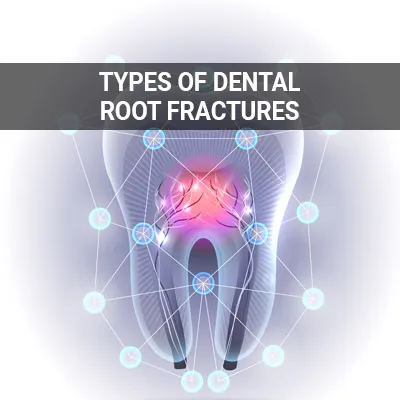What is an Endodontist Charleston, SC
You may be vaguely familiar with the term "endodontics" but unclear about exactly what this field of dentistry entails. While many general dentists perform endodontic procedures, an endodontist is a specialized dentist with additional training. General dentists and endodontists work together to help manage tooth pain.
General dentists also make referrals to endodontists. The American Academy of Endodontists (AAE) reports that general dentists typically refer about half of their patients in need of root canals to an endodontist. Our team at Hudgens Dental in Charleston and the surrounding area can provide more information on endodontic care and possible services you may need.
Call us at (843) 588-5115 to learn more.
Who Can Become an Endodontist
Endodontists are dental specialists who focus on root canal treatment, diagnosing tooth pain, and other procedures involving the tooth's interior. In addition to completing dental school, endodontists must undergo at least two years of specialist training. This knowledge allows them sometimes to preserve teeth that they would have otherwise lost.
Altogether, endodontists complete six to seven years of postgraduate schooling. Their specialist training focuses on diagnosing, treating, and preventing diseases of the dental pulp. This also makes them extraordinarily proficient in pain management and utilizing cutting-edge technologies in their practice.
“In addition to completing dental school, endodontists must also undergo at least two years of specialist training.”
Endodontists vs. Dentists
Although all endodontists must finish dental school, not all dentists must train in endodontics. Thus, while all endodontists are dentists, very few dentists are endodontists. By focusing their expertise on the tooth's interior, endodontists are typically more experienced in root canal treatments than dentists.
The average endodontist performs 25 root canal treatments per week — a far cry from the average dentist's two. Furthermore, since endodontists dedicate themselves to diagnosing and treating tooth pain, they also tend to be more skilled in treating difficult-to-diagnose oral and facial pain issues.
“Thus, while all endodontists are dentists, very few dentists are endodontists.”
Standard Issues Endodontists Treat
The most common issue that an endodontist treats is an infected tooth pulp, which is treated with a procedure called a root canal. The American Academy of Endodontists reports the average endodontist performs 25 root canals each week. During a root canal, an endodontist will use specialized tools—such as 3D imaging and microscopes — to identify and clear the infected soft pulp from the inside of a tooth.
They will then seal off the tooth to prevent further damage. Endodontists also perform endodontic retreatments or revisions to initial root canal treatments if the patient has persistent pain or if a tooth has decayed further after a root canal.
“Endodontists also perform endodontic retreatments or revisions to initial root canal treatments if the patient has persistent pain or if a tooth has decayed further after a root canal.”
Check out what others are saying about our dental services on Yelp: What is an Endodontist in Charleston, SC
Severe Endodontic Treatments
Endodontists can also help with more severe issues, such as surgery and dental implant placement. These procedures are often necessary after an initial root canal treatment. Root canal treatments are also not always suitable for every patient. Endodontic surgery and dental implant placement can preserve a tooth for a lifetime.
Occasionally, patients may have small fractures or hidden canals that go undetected by X-rays during an initial root canal treatment. Endodontic surgery can locate these fractures or canals, remove any calcium deposits, and treat any damaged surfaces. If all these measures are inadequate, tooth extraction may be necessary. In such cases, dental implants are the premier tooth replacement option, as they look and function like natural teeth.
“Endodontic surgery and dental implant placement can preserve a tooth for a lifetime.”
Questions Answered on This Page
Q. What are the qualifications to become an endodontist?
Q. What is the difference between endodontists and dentists?
Q. Can endodontists help with more severe issues?
Q. When should I see the endodontist?
Q. What are some standard issues endodontists treat?
People Also Ask
Q. Is increased sensitivity to temperature a sign that endodontic surgery is necessary?
Q. What are the benefits of a root canal?
Q. Are root canals a safe and common procedure?
Q. What are examples of severe endodontist treatments?
Q. What are some of the signs indicating a need for tooth extraction?
When to See an Endodontist
Many patients make the mistake of fearing the endodontist. In reality, it is critical to address tooth pain as soon as possible. Early intervention maximizes the chances of saving one's tooth. In many cases, an endodontist can resolve a patient's tooth pain in one appointment.
Individuals should seek out medical attention if they are experiencing tooth pain or have any temperature sensitivity. More severe cases may include incidents that have led to facial trauma or swelling around the face, gums, or teeth. Patients may worsen their situation by delaying treatment.
“Early intervention maximizes the chances of saving one’s tooth.”
Frequently Asked Questions
Q. How common are root canals?
A. Root canals are slowly becoming a more common procedure, as the AAE reports that an average endodontist performs 25 root canals each week. Root canals are a crucial treatment to help prevent the further spread of infection or damage to the surrounding teeth.
Q. Does an endodontist perform more root canals than a dentist?
A. In general, yes. Because endodontists focus primarily on root canals, they tend to conduct a higher volume of these procedures. As the AAE estimates, the average endodontist performs 25 root canals each week, whereas the average dentist performs only two. Thus, seeking a professional endodontist can provide the specialized services the patient needs.
Q. What is the satisfaction rate of endodontists?
A. Endodontists are well-respected by their professional colleagues and patients alike. The AAE reports that 89% of patients remain satisfied after having a root canal performed by an endodontist; 94% of dentists have a positive impression of the care provided by the endodontists with whom they collaborate.
Q. How can I learn more about endodontics?
A. The field of endodontics is represented by the American Academy of Endodontists. Their motto is that endodontists are specialists in saving teeth. To learn more, you can visit the AAE website, which has several educational videos.
Q. Are root canal treatments painful?
A. Several endodontic procedures are designed to relieve the pain of toothaches derived from pulp inflammation or infection. Today's endodontists know more about pain management than ever. Now, most patients report little discomfort during the procedure.
Endodontic Terminology
Call Us Today
Choosing the right dentist can be intimidating. Our team at Hudgens Dental can help. Call us today at 843-588-5115 to schedule an appointment or learn more about our services.
Helpful Related Links
- American Dental Association (ADA). Glossary of Dental Clinical Terms. 2025
- American Academy of Cosmetic Dentistry® (AACD). Home Page. 2025
- WebMD. WebMD’s Oral Care Guide. 2025
About our business and website security
- Hudgens Dental was established in 1996.
- We accept the following payment methods: American Express, Cash, Check, Discover, MasterCard, and Visa
- We serve patients from the following counties: Charleston County
- We serve patients from the following cities: Charleston, Mount Pleasant, James Island, Ravenel, Meggett, North Charleston, Daniel Island, and West Ashley
- Healthgrades. View Background Information and Reviews
- Norton Safe Web. View Details
- Trend Micro Site Safety Center. View Details
Back to top of What is an Endodontist








